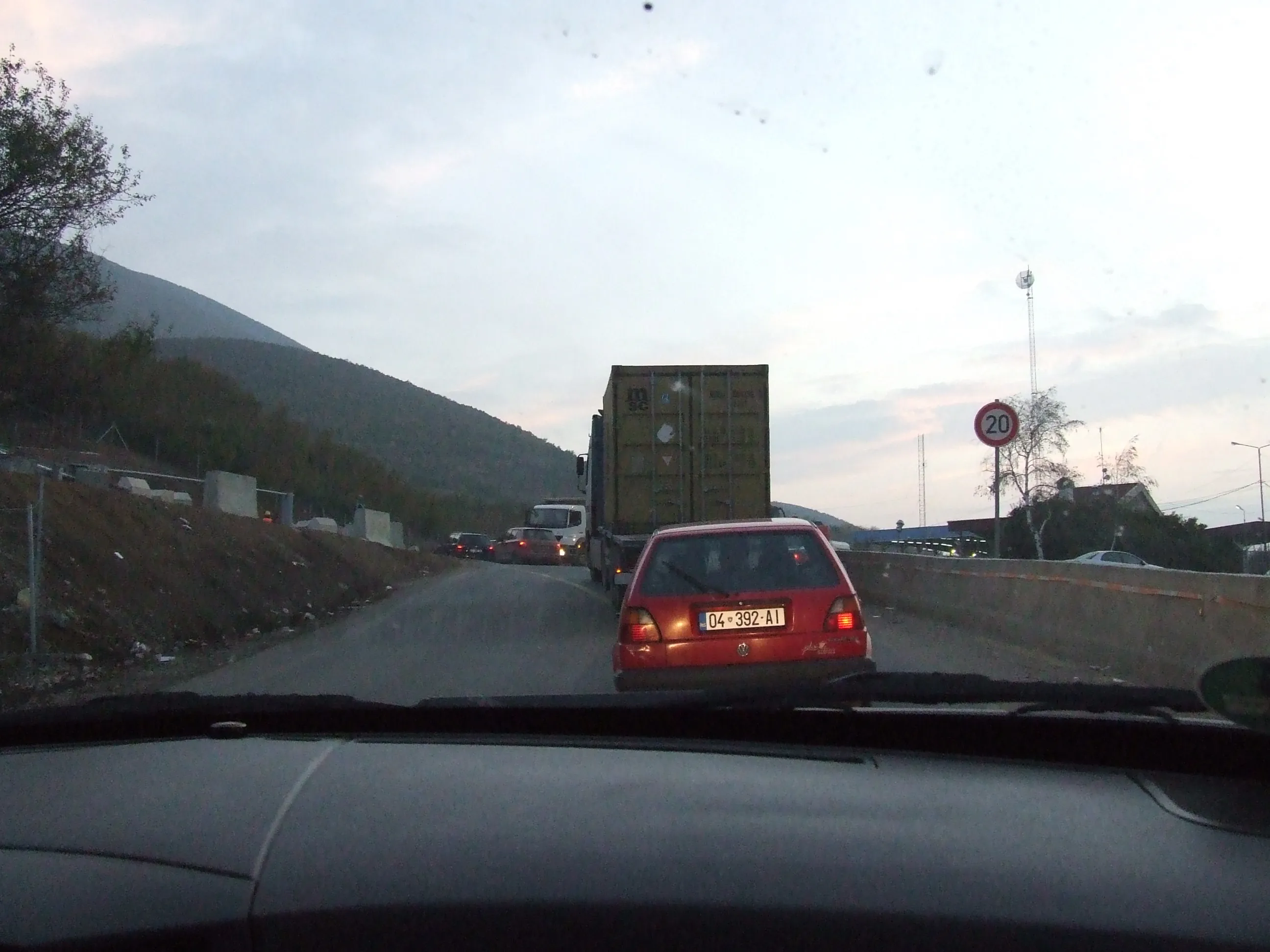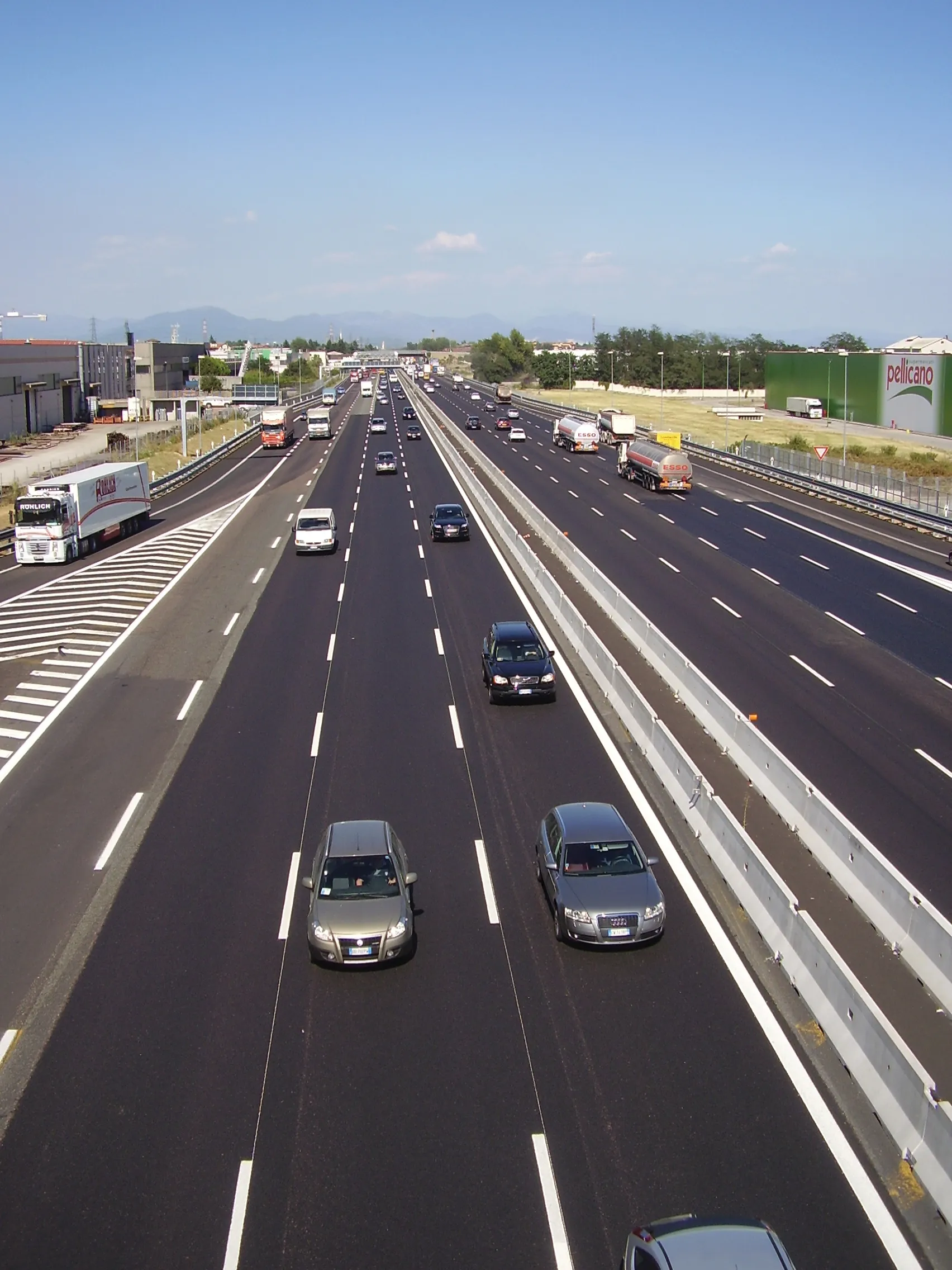The ERF has teamed up with the Greek road safety associations to organise the Technical Conference on Road Infrastructure Safety Equipment in Athens this month. The financial crisis took its toll on Greek infrastructure development and by 2011 the government had frozen key motorway projects aimed at completing the Greek Trans-European Road Network. But following lengthy negotiations between Greek authorities, financial institutions and the European Commission, a deal was struck in 2014 to re-launch these im
March 12, 2015
Read time: 4 mins

The ERF has teamed up with the Greek road safety associations to organise the Technical Conference on Road Infrastructure Safety Equipment in Athens this month
The financial crisis took its toll on Greek infrastructure development and by 2011 the government had frozen key motorway projects aimed at completing the Greek Trans-European Road Network. But following lengthy negotiations between Greek authorities, financial institutions and the2465 European Commission, a deal was struck in 2014 to re-launch these important road projects. As a result, Greece will witness a significant expansion of its road network in the coming years, a crucial investment that will also contribute to Greece’s economic recovery.
Against this backdrop, the European Union Road Federation, in cooperation with the National Technical University of Athens and the Hellenic Institute of Transport Engineers, organised a two-day Technical Conference on Road Infrastructure Safety Equipment in Athens on 12-13 February.
The first half of the event, held in association with the Hellenic Ministry of Infrastructure, Transport and Networks, focused on institutional policies concerning road safety. Prominent speakers included Szablocs Schmidt, head of unit for road safety at DG MOVE, the European Commission’s Directorate-General for Mobility and Transport. Schmidt provided an overview of EC policies and shared the Commission’s initial thoughts concerning revision of Directive 2008/96 on road infrastructure safety management.
Discussions then moved onto technical aspects and included three sessions on road restraint systems, horizontal and vertical signage and work zone safety, passive support structure and maintenance. The aim was to bring together European best practice, in particular that of Greece’s main road operators who will be responsible for construction and operation of the unfinished stretches of the Greek TEN-T.
The session on road restraint systems gave an overview of the EN 1317 and its implementation in Greece. Presentations looked at innovative developments in the field of steel and concrete barriers as well the experience of road operators in the field of passive safety devices. The audience had an overview of standards in the field of road markings and signs and the ERF presented, for the first time, some thoughts based around its upcoming position paper on traffic signs.
With the average age of Europe’s drivers expected to increase rapidly in the coming years, the7575 ERF is stressing the safety benefits of enhanced visibility of markings and signs, with a particular emphasis on the secondary network, where more than half of accidents occur. In addition, there was a presentation of an innovative new vehicle mounted software that allows authorities to measure the retro-reflectivity of traffic signs.
With maintenance budgets remaining tight in Europe over the next couple of years, such technologies can play an important role in helping authorities monitor the performance of road elements and to prioritise road maintenance.
The conference ended with a session on work zones, passive support structure and maintenance techniques and included presentation of an ERF position paper on work zone safety. Over the past three years, the ERF Working Group has collected the national regulations of 193287 EU countries with a view to proposing a voluntary guideline of minimum performance criteria for all road equipment such as barriers, signs, markings and cones, in line with the European Commission’s effort to improve safety in work zones.
The session saw the ERF launch its formal involvement in passive support structures according to EN 12767, the European standard on passive safety of support structures for road equipment. The ERF’s involvement will be driven through its newly created working group and the promotion of so-called forgiving poles as a cost-effective road safety solution to compliment safety barriers.
The event closed with a presentation of sound-blasting techniques for road surfaces that are intended to ensure roads retain their skid resistance.
The event also hosted an exhibition, where companies had the opportunity to display their latest safety related developments to an audience of around 150 people.
Further information about the conference is available %$Linker:2 External <?xml version="1.0" encoding="utf-16"?><dictionary /> 0 0 0 oLinkExternal here ERF - European Road Federation - Technical Conference on Road Infrastructure Safety Equipment in Athens false http://www.erf.be/index.php/communication/press-releases/444-technical-conference-on-road-infrastructure-safety-equipment-in-athens false false %>
The financial crisis took its toll on Greek infrastructure development and by 2011 the government had frozen key motorway projects aimed at completing the Greek Trans-European Road Network. But following lengthy negotiations between Greek authorities, financial institutions and the
Against this backdrop, the European Union Road Federation, in cooperation with the National Technical University of Athens and the Hellenic Institute of Transport Engineers, organised a two-day Technical Conference on Road Infrastructure Safety Equipment in Athens on 12-13 February.
The first half of the event, held in association with the Hellenic Ministry of Infrastructure, Transport and Networks, focused on institutional policies concerning road safety. Prominent speakers included Szablocs Schmidt, head of unit for road safety at DG MOVE, the European Commission’s Directorate-General for Mobility and Transport. Schmidt provided an overview of EC policies and shared the Commission’s initial thoughts concerning revision of Directive 2008/96 on road infrastructure safety management.
Discussions then moved onto technical aspects and included three sessions on road restraint systems, horizontal and vertical signage and work zone safety, passive support structure and maintenance. The aim was to bring together European best practice, in particular that of Greece’s main road operators who will be responsible for construction and operation of the unfinished stretches of the Greek TEN-T.
The session on road restraint systems gave an overview of the EN 1317 and its implementation in Greece. Presentations looked at innovative developments in the field of steel and concrete barriers as well the experience of road operators in the field of passive safety devices. The audience had an overview of standards in the field of road markings and signs and the ERF presented, for the first time, some thoughts based around its upcoming position paper on traffic signs.
With the average age of Europe’s drivers expected to increase rapidly in the coming years, the
With maintenance budgets remaining tight in Europe over the next couple of years, such technologies can play an important role in helping authorities monitor the performance of road elements and to prioritise road maintenance.
The conference ended with a session on work zones, passive support structure and maintenance techniques and included presentation of an ERF position paper on work zone safety. Over the past three years, the ERF Working Group has collected the national regulations of 19
The session saw the ERF launch its formal involvement in passive support structures according to EN 12767, the European standard on passive safety of support structures for road equipment. The ERF’s involvement will be driven through its newly created working group and the promotion of so-called forgiving poles as a cost-effective road safety solution to compliment safety barriers.
The event closed with a presentation of sound-blasting techniques for road surfaces that are intended to ensure roads retain their skid resistance.
The event also hosted an exhibition, where companies had the opportunity to display their latest safety related developments to an audience of around 150 people.
Further information about the conference is available %$Linker:








